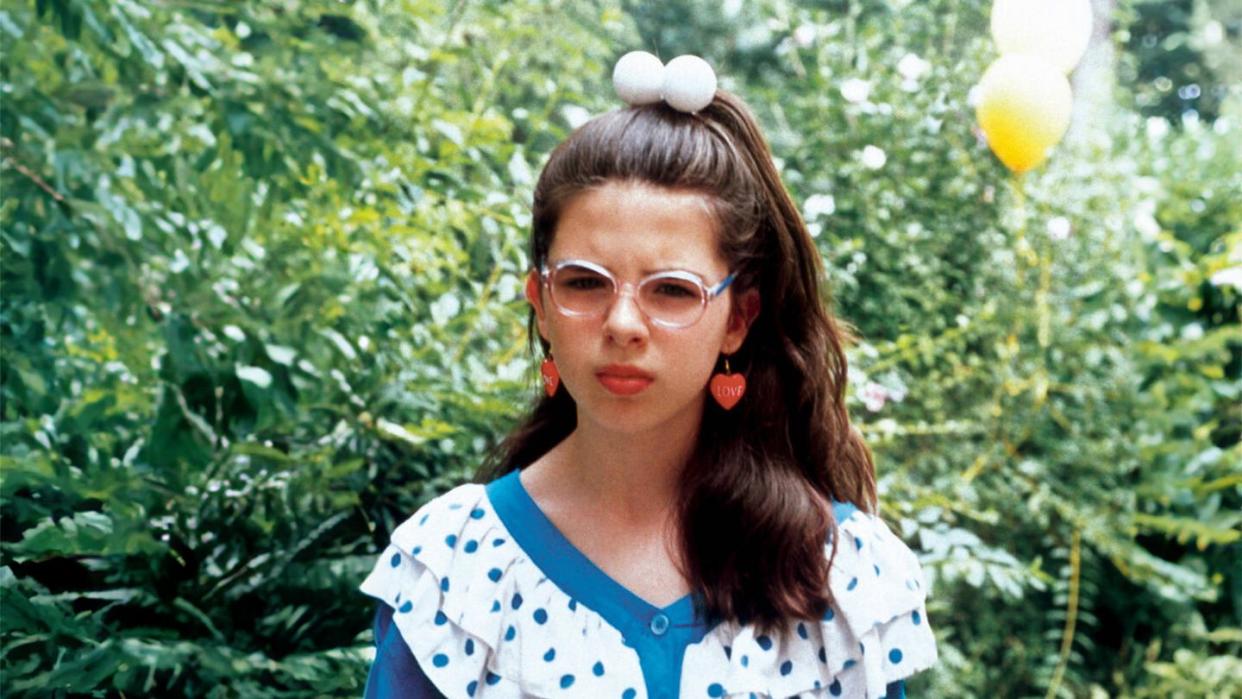Lessons in Awkwardness: Is Social Media Making Kids Grow Up Too Fast, or Not Fast Enough?

"Hearst Magazines and Yahoo may earn commission or revenue on some items through these links."
You’ve surely seen some version of this meme: a photo on the left of brace-faced 12-year-olds with ill-conceived hairstyles and ill-fitting clothes staring confidently at the camera with no trace of awareness that they will ever cringe at this photo, juxtaposed with a photo on the right of 12-year-olds with perfectly coiffed hair and perfectly airbrushed makeup and perfectly taut tummies peeking out from their cropped or bustier-style tops, looking as grown up and put together as a Kardashian on a red carpet. The post is captioned something like “What I looked like as a tween vs. how tweens look today.” There’s no doubt the social media landscape, with its beauty influencers and their endless supply of how-to videos, has turned America’s smartphone-wielding girls into an extremely skilled army of imitators (not to mention a valuable consumer demographic, judging from sales of Drunk Elephant and Sol de Janeiro products).
That knowledge doesn’t inoculate adults from the shock we feel each time we see a kid who effortlessly puts our eyeliner skills to shame. “It’s scary,” says Emese Gormley, whose podcast, Lipstick on the Rim, which she co-hosts with Molly Sims, recently covered the craze among kids for fancy skincare after Gormley learned of a friend’s daughter who burned her skin using a product intended for adults. “My daughter had a nine-year-old friend over this week who was wearing mascara, and I asked her which mascara, and she said Better Than Sex. I swear my jaw dropped.”
The irony is that, for all the sophistication their physical appearances and self-maintenance habits seem to convey, kids these days are surprisingly immature. “There’s a weird tension we’re seeing in the data, where kids are growing up both slower and faster than ever,” says Zach Rausch. Rausch is the lead researcher for NYU social psychologist Jonathan Haidt, whose new book, The Anxious Generation, about the causes of the youth mental health crisis, has shot to the top of best-seller lists. “There’s been a sharp decline in unsupervised time and time spent with friends,” Rausch says, “and things like your first drink, sex, your first paid job, getting your driver’s license—the things that traditionally defined moving through stages of adolescence—are getting delayed. At the same time, online, kids are getting pushed these crazy beauty standards and are exposed to a rapid sexualization. And the constant comparison you’re subjected to online becomes a major issue, for girls especially. In our surveys their satisfaction with themselves and their bodies has been dropping since 2010”—the year Instagram launched.
“It’s not that I would wish my youthful awkwardness on my daughter,” says psychiatrist Samantha Boardman (who turned into a very glamorous adult). But she does wonder what might be lost along with those awkward years. “There is something to be said for the discomfort of awkwardness,” she says, citing a recent study that correlates experiencing discomfort in various situations with personal growth.
Could all this premature physical perfection leave kids with some kind of personality deficiency come adulthood? Perhaps. According to Haidt and Rausch’s research, teen girls are spending 20 hours per week on social media—time that was once spent at least in part on things unrelated to physical appearance or social comparison. Additionally, adolescence is meant to be a time to find role models who “help you transition from being the awkward kid into the person you are going to become,” Rausch says, “and an important part of that is having a relationship, a give-and-take with those role models. When you’re channeling millions toward an influencer who has no idea who you are, something is lost. We've outsourced mentorship to the virtual world."
One small upside: If you live with a tween girl, you may save yourself a trip to the salon. “During Covid, my middle school daughter cut my and my husband’s hair—she was like Edward Scissorhands! And she did my hair and makeup for TV appearances I had to film from home,” Boardman says. “She knows how to wield a blow dryer in ways that are extraordinary.”
Photo at top: Awkward state icon Dawn Wiener, played by Heather Matarazzo in the 1995 film Welcome to the Dollhouse.
This story appears in the May 2024 issue of Town & Country. SUBSCRIBE NOW
You Might Also Like
